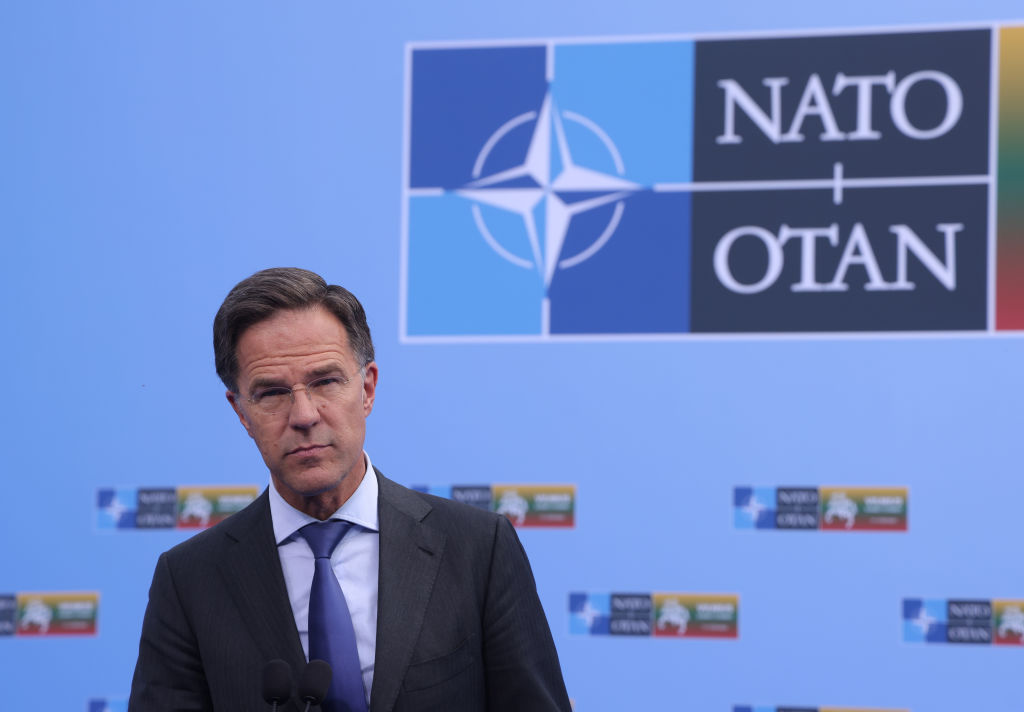It is the night of the living dead once again at a Western institution. Just as in Eighties horror movies the monster seemingly dies only to reappear after the credits, so it seems that the mediocre European politicians of yesteryear pop up again and again.
The most recent has-been to stage a successful comeback is former Dutch prime minister Mark Rutte, who has just been confirmed as the next secretary-general of Nato. After four terms as PM, Rutte threw in the towel last summer, claiming that the different views on immigration between him and his coalition partners were “unbridgeable”. Unable to mend the gaps within the Dutch government, he almost immediately started to position himself as a possible successor to Jens Stoltenberg, the current head of Nato who was asked to extend his term last year when capable replacements were hard to come by.
But if Rutte found it impossible to bridge division within the Netherlands, will he have any more luck when it comes to the growing rifts in Nato? The alliance is not as unified as it once was, with several members trying to chart their own course. Turkey, for example, is more interested in playing the role of a middle power between the West and Russia while expanding its own influence in the Middle East, often openly sympathising with Islamists groups such as Hamas whose fighters have been receiving medical treatment in Turkey.
This is quite remarkable, considering that Nato’s original purpose was as a defence against the Soviet Union, and that Article 5 (stating that an armed attack against one member state shall be considered an attack against all member states) of the North Atlantic Treaty has only been invoked once in the 75-year history of the alliance. In that case, it was against the violent Islamism of al-Qaeda after 9/11.
But it is not only Istanbul which diverges. In order for Rutte to get the needed approval of all 32 member states, he had to give Hungary written guarantees that Budapest can opt out of future military support for Ukraine. There are some signs that Rutte was not chosen because he is the best candidate to knit the alliance closer together, but instead because he can make deals and exceptions for an alliance whose members are drifting apart.
This is one reason why neither Estonian Prime Minister Kaja Kallas nor Romanian President Klaus Iohannis were able to make the cut for the top job at Nato. Both are uncompromising supporters of Ukraine’s war effort and, contrary to public displays of unity, this position has come under fire from several members, including Slovakia, Turkey, and Hungary.
Rutte’s appointment is therefore not the beginning of a new era for Nato, but a desperate attempt to maintain the status quo within an alliance unsure about its future role. Some members would like it to play a more active role in global conflicts, while others would like to see it limited to a purely defensive alliance which doesn’t participate in conflicts like it did during the Kosovo War in 1999, the 2011 intervention in Libya, or the current support for Ukraine. We will see if Rutte turns out to be the right person to bridge these divisions, but for now his appointment is showing just how much trouble the alliance is truly in.











Join the discussion
Join like minded readers that support our journalism by becoming a paid subscriber
To join the discussion in the comments, become a paid subscriber.
Join like minded readers that support our journalism, read unlimited articles and enjoy other subscriber-only benefits.
Subscribe